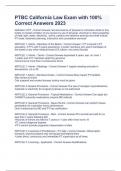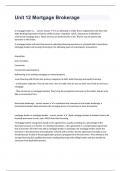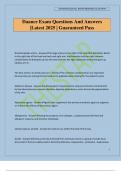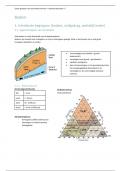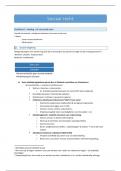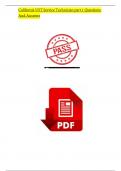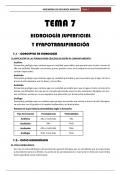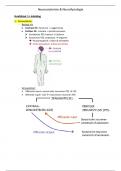MEDIA EN INFORMATIE
Woensdag: geen college, zelf colleges kijken.
Voorbereiden: college kijken, literatuur lezen, opdracht maken.
Donderdag: zoom bijeenkomst om opdracht te bespreken en praktische toepassen
Hoorcollege 1 – 4/11/2020
State of the world 2020: man vs monkey
Hoeveel meisjes in lage-inkomenslanden maken de basisschool af?
60%
Waar woont het grootste deel van de wereldbevolking?
In midden-inkomenslanden (mensen hebben gewoon beschikking over riool, elektriciteit,
school, banen).
De afgelopen 20 jaar is het deel van de wereldbevolking dat in extreme armoede leeft…
Gehalveerd.
Wat is vandaag de gemiddelde levensverachting in de wereld?
70 jaar
Hoe is de afgelopen 100 jaar het aantal mensen dat per jaar omkomt door natuurrampen
veranderd?
Afgenomen tot minder dan de helft.
Waar wonen de mee de meeste mensen verdeeld over de wereld?
Azië meeste mensen veruit
Eu, Amerika, Afrika even veel +-
Hoeveel eenjarige kinderen in de wereld zijn u ingeënt tegen een ziekte?
80%
Wereldwijd hebben dertigjarige mannen gemiddeld 10 jaar op school gezeten. Hoeveel jaar
hebben vrouwen van die leeftijd gemiddeld op school gezeten?
9 jaar.
1996: tijgers, reuzenpanda’s en zwarte neushoorns staan op del ijst van bedreigde
diersoorten. Welke worden nu nog ernstiger bedreigd dan toen?
Geen van de drie.
Hoeveel mensen op de wereld hebben enige toegang tot elektriciteit?
80%
Sinds de jaren ’70 is het percentage moorden in VS…
Gehalveerd
Het moordcijfer in NL is…
1 op de 100.000
Vergeleken met 30-40 jaar geleden is het aantal doden door terrorisme…
,Sterk afgenomen
Het aantal doden door oorlog is vanaf de jaren ’50…
Met 90% gedaald
De criminaliteit in NL in de 21e eeuw…
Neemt consistent af
Het aantal moslims in NL is de afgelopen 10 jaar…
Ongeveer gelijk gebleven
(minder dan procent bij gekomen)
Klimaatexperts over de hele wereld denken dat de gemiddelde temperatuur in de komende
100 jaar zal…
Stijgen
Opdracht 1
Op nieuws horen we vooral slechte dingen.
Wij denken veel negatiever dan dat het eigenlijk is.
Stereotyperingen. Arme landen hebben het minder voor elkaar, moslims zijn veel meer
aanwezig in NL dan ze eigenlijk zijn meiden gaan nog minder naar school.
Selectieve blootstelling. We zien dingen die onze ideeën bevestigen waardoor we blijven
geloven dat dit de werkelijkheid is.
Mensen onthouden vooral negatieve dingen.
Dingen die ver van je weg gebeuren vind je minder boeiend.
Confirmation bias. Als je ergens eenmaal in geloofd dan wijk je daar niet snel meer vanaf.
Framing. Plaatjes die we zien dragen ook nog bij aan onze antwoorden.
1 Informatie die je krijgt en die je zoekt.
2 Wat doen we zelf met de informatie.
Gevolgen:
- Meer geld naar goede doelen als we denken dat het heel slecht gaat.
- Populistische stromingen bij politieke partijen kunnen goed op onze misinformatie
inspelen. Gebruik of misbruik van maken.
Oplossing: we willen al het nieuws zien.
Vragen die we in de opleiding beantwoord willen hebben:
Of de verkiezingen nu anders zijn (grimmiger) in vergelijking met andere jaren?
Gemeinschaft – gemeenschappen die klein zijn, niet modern, waarbij alles wat relevant is
voor de inwoners ook gebeurt in hun dichte omgeving. Hier is geen media nodig, ze maken
alles zelf mee.
Geselschaft – de moderne maatschappij. heel veel dingen zijn belangrijk voor ons, maar we
kunnen niet over al bij zijn (naar VS vliegen om verkiezingen mee te maken, in de tweede
kamer zitten). We hebben media nodig om een beetje geïnformeerd te zijn.
,Media system dependency: We leven in informatiesamenleving. Het is een wisselwerking.
Houdt in dat de individu, sociale mediasystemen en massamedia van elkaar afhankelijk zijn.
iemand die meer afhankelijk is van media om zijn behoefte te voorzien, dan speelt media een
grotere rol en hebben de media meer effect op die persoon.
Hoe meer informatie, hoe meer verwarring dat creëert (welke informatie klopt nu wel)
Hoe onzekerder de wereld, des te afhankelijker zijn we van de media om onze wereld te
begrijpen.
Aandachtseconomie: het idee dat media, bedrijven concurreren om onze aandacht. Ze willen
ons niet zo nodig goed informeren, maar dat we erop klikken. En dat zij aandacht krijgen.
Het gaat niet meer over de kwaliteit. We moeten kiezen welk nieuws we willen zien, want
alles kan niet.
Betrouwbaar en aandachttrekkend kan botsen.
Artikel: Dobelli (2010)
Avoid news: towards a healthy news diet.
Opiniestuk!!
Why are we so well informed and yet we know so little.
The toxic dangers of news:
1) News misleads us systematically
News reports do not represent the real world. Our brains are wired to pay attention to visible,
shocking, large, scandalous news and not the subtle pieces. News grab our attention with
gripping stories and lurid pictures.
Consequence: we have a wrong picture of the world in our heads.
Solution: there is non, but you can cut yourself off from consuming news entirely.
2) News is irrelevant
People find it very difficult to recognize what’s relevant. Although they recognize easier
whats’ new. Relevance doesn’t come naturally, news does. Relevance is a personal choice of
what is important to you.
3) News limits understanding
We really want to understand the underlying process of how things happen. Unfortunately,
this is barely captured in news articles. They go for the light stuff, because it’s cheap to
produce. Newspapers wants us to digest as much news as we desire. Humans think when we
absorb much news that we know a lot, but the opposite is true. When we digest or we lose the
big picture. There is no proof information junkies are better at decision making, more
successful, etc.
Reading news to understand the world is worse than not reading anything. What’s best: cut
yourself off from daily news consumption entirely. Read books and thoughtful journals
instead of gulping down flashing headlines.
4) News is toxic to your body
News constantly triggers our body to find itself in a state of chronic stress.
5) News massively increases cognitive errors
, News causes the confirmation bias. Humans interpret all new information so that their prior
conclusions remain intact. We walk around in a cloud with our own beliefs thinking that’s
reality, while in fact they may be wrong.
6) News inhibits thinking
Thinking requires concentration concentration requires uninterrupted time news items
interfere with clear thinking.
7) News changes the structure of your brain
News is addictive. We seek more and more information to get our fix. When we consume
more news, we tend to skim it, this declines our ability to read deeply and focus. Not able to
absorb lengthy articles, because we get tired after four/five pages and concentration vanishes.
The physical structures of our brains have changed.
8) News is costly
News wastes our time in three ways. One: consuming the news takes time. Two: after
consuming news we have to switch back to what we were originally doing. Three: news keeps
distracting us by popping back up in our minds. Why are we so irresponsible with our time,
since we are not with our money or health.
9) News sunders the relationship between reputation and achievement
Back in the days, reputation was linked to achievement. Today mass media introduces fame to
society, which is misleading, because the label fame has little to do with any achievements.
10) News is produces by journalists
Good or bad news can hardly be told apart. Good news is well researched and fact-checked,
whereas bad news is quickly written with little capacity for deep analyses.
11) Reported facts are sometimes wrong, forecasts always
News can contain wrong facts. The fact checkers are not so much used in all news articles.
12) News is manipulative
We’ve learned signs to detect manipulation in our face-to-face interaction, but this is way
harder in media. Journalism shapes a common picture of the world and common narratives for
discussing it. Thereby they set our public agenda (what we discuss).
13) News makes us passive
News stories are overwhelmingly about things you cannot influence. This phenonenom is
called, learned helplessness. Humans are thaught that they cannot influence the event.
14) News gives us the illusion of caring
Consuming news does not make us more connected to each other. We are connected because
we interact and trade.
15) News kills creativity
Things we already know limits our creativity. At at younger age, with less information in the
brain, the mindset is wider and views more options. Besides that, distraction can also kill the
creativity.
Solution for news:
Woensdag: geen college, zelf colleges kijken.
Voorbereiden: college kijken, literatuur lezen, opdracht maken.
Donderdag: zoom bijeenkomst om opdracht te bespreken en praktische toepassen
Hoorcollege 1 – 4/11/2020
State of the world 2020: man vs monkey
Hoeveel meisjes in lage-inkomenslanden maken de basisschool af?
60%
Waar woont het grootste deel van de wereldbevolking?
In midden-inkomenslanden (mensen hebben gewoon beschikking over riool, elektriciteit,
school, banen).
De afgelopen 20 jaar is het deel van de wereldbevolking dat in extreme armoede leeft…
Gehalveerd.
Wat is vandaag de gemiddelde levensverachting in de wereld?
70 jaar
Hoe is de afgelopen 100 jaar het aantal mensen dat per jaar omkomt door natuurrampen
veranderd?
Afgenomen tot minder dan de helft.
Waar wonen de mee de meeste mensen verdeeld over de wereld?
Azië meeste mensen veruit
Eu, Amerika, Afrika even veel +-
Hoeveel eenjarige kinderen in de wereld zijn u ingeënt tegen een ziekte?
80%
Wereldwijd hebben dertigjarige mannen gemiddeld 10 jaar op school gezeten. Hoeveel jaar
hebben vrouwen van die leeftijd gemiddeld op school gezeten?
9 jaar.
1996: tijgers, reuzenpanda’s en zwarte neushoorns staan op del ijst van bedreigde
diersoorten. Welke worden nu nog ernstiger bedreigd dan toen?
Geen van de drie.
Hoeveel mensen op de wereld hebben enige toegang tot elektriciteit?
80%
Sinds de jaren ’70 is het percentage moorden in VS…
Gehalveerd
Het moordcijfer in NL is…
1 op de 100.000
Vergeleken met 30-40 jaar geleden is het aantal doden door terrorisme…
,Sterk afgenomen
Het aantal doden door oorlog is vanaf de jaren ’50…
Met 90% gedaald
De criminaliteit in NL in de 21e eeuw…
Neemt consistent af
Het aantal moslims in NL is de afgelopen 10 jaar…
Ongeveer gelijk gebleven
(minder dan procent bij gekomen)
Klimaatexperts over de hele wereld denken dat de gemiddelde temperatuur in de komende
100 jaar zal…
Stijgen
Opdracht 1
Op nieuws horen we vooral slechte dingen.
Wij denken veel negatiever dan dat het eigenlijk is.
Stereotyperingen. Arme landen hebben het minder voor elkaar, moslims zijn veel meer
aanwezig in NL dan ze eigenlijk zijn meiden gaan nog minder naar school.
Selectieve blootstelling. We zien dingen die onze ideeën bevestigen waardoor we blijven
geloven dat dit de werkelijkheid is.
Mensen onthouden vooral negatieve dingen.
Dingen die ver van je weg gebeuren vind je minder boeiend.
Confirmation bias. Als je ergens eenmaal in geloofd dan wijk je daar niet snel meer vanaf.
Framing. Plaatjes die we zien dragen ook nog bij aan onze antwoorden.
1 Informatie die je krijgt en die je zoekt.
2 Wat doen we zelf met de informatie.
Gevolgen:
- Meer geld naar goede doelen als we denken dat het heel slecht gaat.
- Populistische stromingen bij politieke partijen kunnen goed op onze misinformatie
inspelen. Gebruik of misbruik van maken.
Oplossing: we willen al het nieuws zien.
Vragen die we in de opleiding beantwoord willen hebben:
Of de verkiezingen nu anders zijn (grimmiger) in vergelijking met andere jaren?
Gemeinschaft – gemeenschappen die klein zijn, niet modern, waarbij alles wat relevant is
voor de inwoners ook gebeurt in hun dichte omgeving. Hier is geen media nodig, ze maken
alles zelf mee.
Geselschaft – de moderne maatschappij. heel veel dingen zijn belangrijk voor ons, maar we
kunnen niet over al bij zijn (naar VS vliegen om verkiezingen mee te maken, in de tweede
kamer zitten). We hebben media nodig om een beetje geïnformeerd te zijn.
,Media system dependency: We leven in informatiesamenleving. Het is een wisselwerking.
Houdt in dat de individu, sociale mediasystemen en massamedia van elkaar afhankelijk zijn.
iemand die meer afhankelijk is van media om zijn behoefte te voorzien, dan speelt media een
grotere rol en hebben de media meer effect op die persoon.
Hoe meer informatie, hoe meer verwarring dat creëert (welke informatie klopt nu wel)
Hoe onzekerder de wereld, des te afhankelijker zijn we van de media om onze wereld te
begrijpen.
Aandachtseconomie: het idee dat media, bedrijven concurreren om onze aandacht. Ze willen
ons niet zo nodig goed informeren, maar dat we erop klikken. En dat zij aandacht krijgen.
Het gaat niet meer over de kwaliteit. We moeten kiezen welk nieuws we willen zien, want
alles kan niet.
Betrouwbaar en aandachttrekkend kan botsen.
Artikel: Dobelli (2010)
Avoid news: towards a healthy news diet.
Opiniestuk!!
Why are we so well informed and yet we know so little.
The toxic dangers of news:
1) News misleads us systematically
News reports do not represent the real world. Our brains are wired to pay attention to visible,
shocking, large, scandalous news and not the subtle pieces. News grab our attention with
gripping stories and lurid pictures.
Consequence: we have a wrong picture of the world in our heads.
Solution: there is non, but you can cut yourself off from consuming news entirely.
2) News is irrelevant
People find it very difficult to recognize what’s relevant. Although they recognize easier
whats’ new. Relevance doesn’t come naturally, news does. Relevance is a personal choice of
what is important to you.
3) News limits understanding
We really want to understand the underlying process of how things happen. Unfortunately,
this is barely captured in news articles. They go for the light stuff, because it’s cheap to
produce. Newspapers wants us to digest as much news as we desire. Humans think when we
absorb much news that we know a lot, but the opposite is true. When we digest or we lose the
big picture. There is no proof information junkies are better at decision making, more
successful, etc.
Reading news to understand the world is worse than not reading anything. What’s best: cut
yourself off from daily news consumption entirely. Read books and thoughtful journals
instead of gulping down flashing headlines.
4) News is toxic to your body
News constantly triggers our body to find itself in a state of chronic stress.
5) News massively increases cognitive errors
, News causes the confirmation bias. Humans interpret all new information so that their prior
conclusions remain intact. We walk around in a cloud with our own beliefs thinking that’s
reality, while in fact they may be wrong.
6) News inhibits thinking
Thinking requires concentration concentration requires uninterrupted time news items
interfere with clear thinking.
7) News changes the structure of your brain
News is addictive. We seek more and more information to get our fix. When we consume
more news, we tend to skim it, this declines our ability to read deeply and focus. Not able to
absorb lengthy articles, because we get tired after four/five pages and concentration vanishes.
The physical structures of our brains have changed.
8) News is costly
News wastes our time in three ways. One: consuming the news takes time. Two: after
consuming news we have to switch back to what we were originally doing. Three: news keeps
distracting us by popping back up in our minds. Why are we so irresponsible with our time,
since we are not with our money or health.
9) News sunders the relationship between reputation and achievement
Back in the days, reputation was linked to achievement. Today mass media introduces fame to
society, which is misleading, because the label fame has little to do with any achievements.
10) News is produces by journalists
Good or bad news can hardly be told apart. Good news is well researched and fact-checked,
whereas bad news is quickly written with little capacity for deep analyses.
11) Reported facts are sometimes wrong, forecasts always
News can contain wrong facts. The fact checkers are not so much used in all news articles.
12) News is manipulative
We’ve learned signs to detect manipulation in our face-to-face interaction, but this is way
harder in media. Journalism shapes a common picture of the world and common narratives for
discussing it. Thereby they set our public agenda (what we discuss).
13) News makes us passive
News stories are overwhelmingly about things you cannot influence. This phenonenom is
called, learned helplessness. Humans are thaught that they cannot influence the event.
14) News gives us the illusion of caring
Consuming news does not make us more connected to each other. We are connected because
we interact and trade.
15) News kills creativity
Things we already know limits our creativity. At at younger age, with less information in the
brain, the mindset is wider and views more options. Besides that, distraction can also kill the
creativity.
Solution for news:

